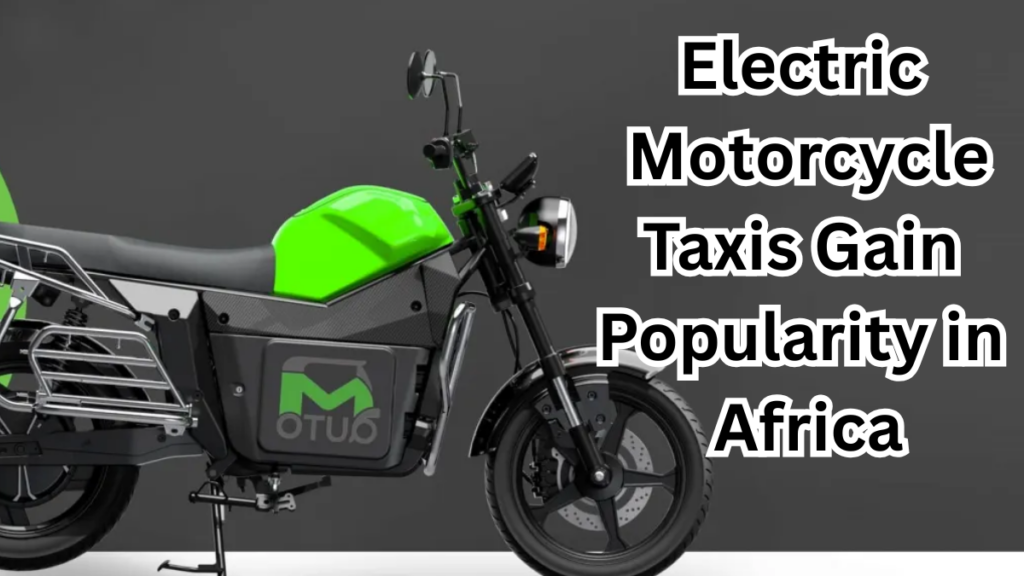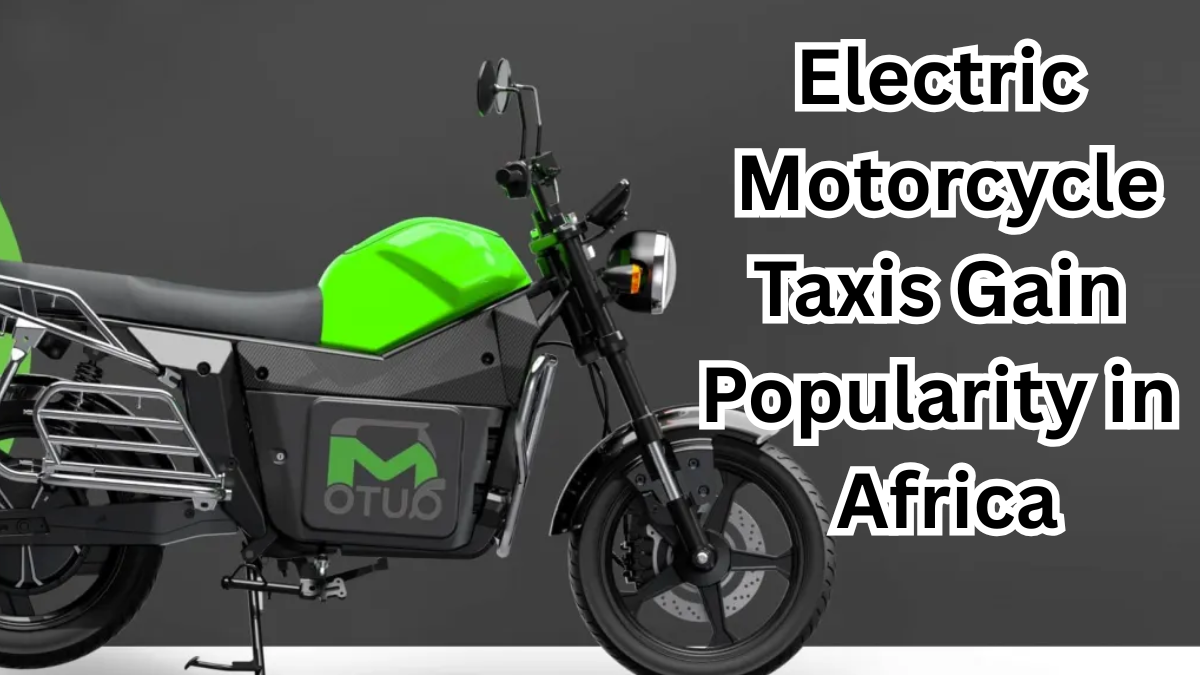Africa’s cities are buzzing with change, and one standout trend in 2025 is the growing shift toward electric motorcycle taxis. Known in many regions as boda bodas, these two-wheelers are now going electric — changing how people move and how cities breathe.
The surge in electric boda adoption reflects a wider movement toward clean energy, smart urban mobility, and economic empowerment.

Why Motorcycle Taxis Are Going Electric
Several factors are fueling this shift in motorcycle taxis Africa:
-
Soaring fuel prices have made electric alternatives more cost-effective for daily riders.
-
Environmental concerns are pushing cities to support low-emission transport options.
-
Government incentives and EV-friendly regulations are encouraging adoption.
-
Tech innovation from African startups is making electric two-wheelers smarter and more accessible.
Countries Leading Electric Boda Adoption
| Country | Key Players | Notable Initiatives |
|---|---|---|
| Kenya | Ecobodaa, Ampersand | Battery swap stations, e-boda pilot projects in Nairobi |
| Uganda | Zembo, Bodawerk | Tax waivers on EVs, public charging hubs |
| Rwanda | Ampersand, SafiRide | Fully electric boda networks with smart systems |
| Nigeria | MAX.ng, Metro Africa Xpress | EV programs in Lagos, UNDP-backed partnerships |
| Ghana | SolarTaxi, TAILG Ghana | Solar-powered charging, rider EV training |
Benefits of Electric Motorcycle Taxis
For Riders
-
Lower operating costs due to electricity replacing petrol
-
Higher income potential through daily savings on fuel
-
Smoother, quieter rides ideal for city commuting
For Cities
-
Cleaner urban air with reduced exhaust emissions
-
Better traffic flow thanks to smart route tech in some electric models
-
Job creation in the EV maintenance, battery, and charging station sectors
Roadblocks to Full Electric Boda Adoption
Despite promising growth, the transition isn’t without its challenges:
-
High upfront costs still make it difficult for some riders to switch
-
Limited charging and battery swap networks especially in rural towns
-
Battery performance can struggle during long hours of use
-
Lack of standardized EV policy across many African countries
What the Future Looks Like
By 2030, it’s expected that electric boda adoption will make up nearly half of all motorcycle taxis in Africa. With growing government support, innovative battery solutions, and a rising awareness of environmental health, electric motorcycle taxis are set to reshape how Africans move — sustainably and affordably.
This movement isn’t just about going electric — it’s about empowering local economies and creating a cleaner tomorrow.
FAQs
What are electric boda bodas?
Electric boda bodas are electric-powered versions of the widely used motorcycle taxis in Africa. They run on batteries rather than petrol, offering a cleaner, quieter mode of transport.
Which countries are adopting electric motorcycle taxis the fastest?
Kenya, Uganda, Rwanda, Nigeria, and Ghana are at the forefront of electric boda adoption, thanks to local startup innovation and supportive government programs.
How do electric motorcycles benefit daily riders?
They significantly cut down on fuel and maintenance costs, increasing daily profits for riders while providing a smoother driving experience.
What are the current challenges of electric motorcycle taxis in Africa?
The main hurdles include high initial purchase prices, inadequate charging infrastructure, battery limitations, and inconsistent government policies on electric vehicle use.
Click here to learn more
Sachin is a dedicated writer specializing in education, career, and recruitment topics, delivering clear and actionable insights to empower readers.
